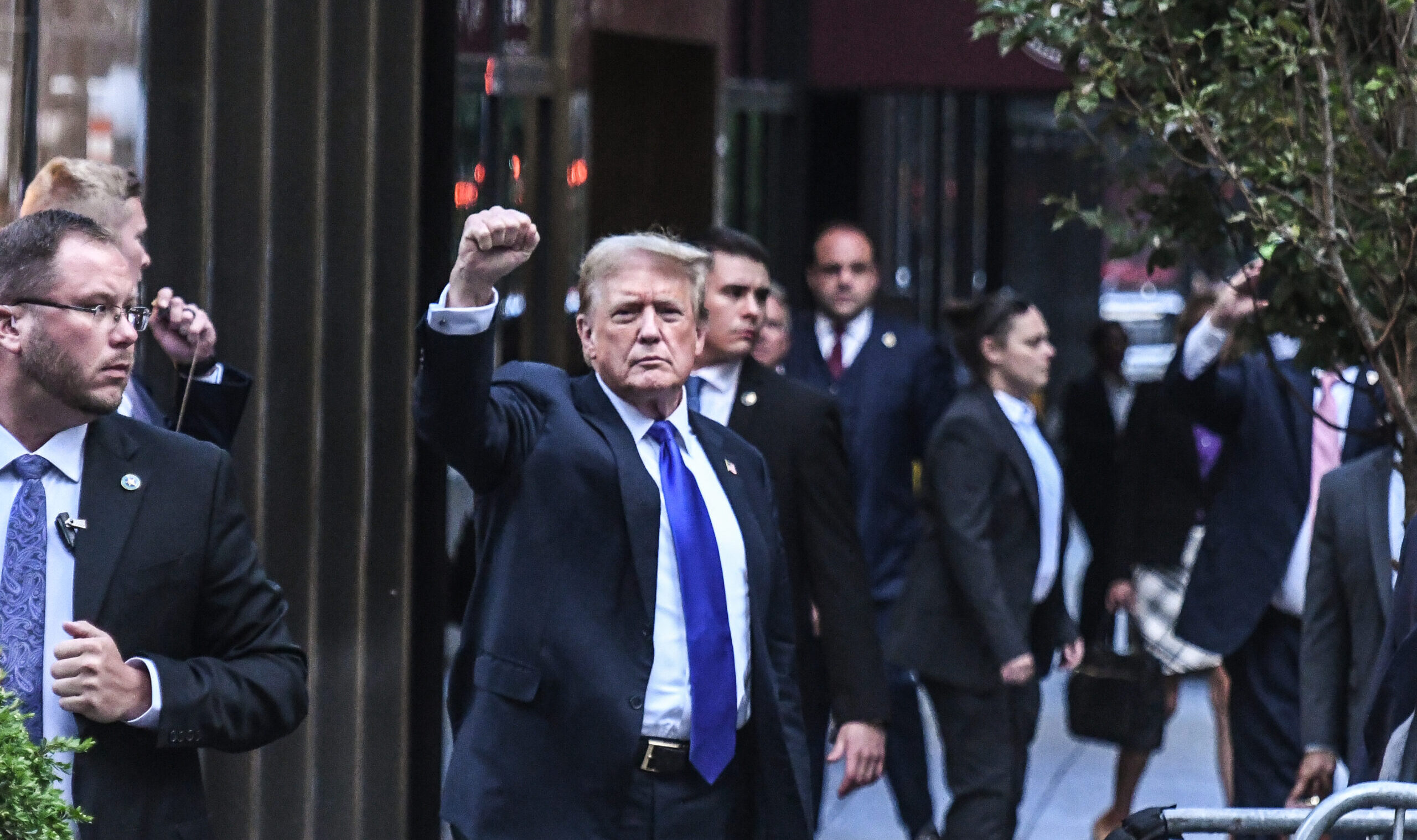Trump Angst Reflects Tenor of Times
The former president was combative at Tuesday’s debate. He had good reason to be.

OK, I admit it: I didn’t think this was possible. The progressive left has found a Trump verdict they can greet with even more ebullience than the guilty decisions in his New York bookkeeping case.
In the matter of Harris v. Trump, overseen by the ABC-appointed judicial panel of David Muir and Linsey Davis, the liberal news media has pronounced Trump guilty of ranting, raving, and being rattled.
The conventional wisdom about the Tuesday debate between Vice President Kamala Harris and former President Donald Trump is that the latter was driven to a state of anger, agitation, and general incoherence. And the left is loving it.
I will readily concede that Trump’s performance last week was less than Oscar-worthy: It had neither the masterly self-control seen during his debate this summer with President Joe Biden nor the theatrical panache of his town hall-style debate in 2016 with Hillary Clinton. In fairness, Trump’s middling performance can be blamed in part on the change in his co-star: To continue with the showbiz analogies, Trump had been rehearsing with (or, well, against) Biden for years, and in his absence, the former president was like a veteran thespian suddenly saddled with an understudy.
Indeed, Trump’s best lines on Tuesday were not directed against Harris but his absent former co-star Biden, about whom Trump has developed such a finely honed routine that he can rattle it off extemporaneously and intuitively. Surely Trump did not need debate coaching courtesy of Tulsi Gabbard to say this about the allegedly sitting president: “[Harris’s] boss, if you call him a boss, he spends all his time on the beach.” Or this: “The President of the United States, you’ll get him out of bed. You’ll wake him up at 4 o’clock in the afternoon.” All but the most churlishly committed leftists will admit this is funny stuff.
The rest of the time, Trump was admittedly unruly and unfocused—but in his very distractedness and digressiveness, he arguably better reflected the tenor of the times than his glossy, vacuous fellow candidate. Trump’s rhetorical congestion suggests his comprehension of a country being torn asunder by myriad social ills, cultural calamities, and policy failures, which it is; Harris’s comparative rhetorical steadiness suggests her comfort with, or ignorance of, these same problems.
When Trump assertively says, “We have a nation in decline and they have put it into decline. We have a nation that is dying,” even though those extremely broad statements are generally devoid of specifics, reasonable conservative-minded Americans will fill in the blanks: We are failing because of a broken border, a grim economy, the woke agenda, the trans agenda, state-level successes of the pro-abortion movement, and so on. Trump’s unhappy mood is a vessel for those despondent over these grave developments.
By contrast, when Harris blandly says, “I believe very strongly that the American people want a president who understands the importance of bringing us together,” those same conservative-minded Americans will hear that they are being encouraged to relinquish their values and, in the name of nothing more high-minded than simply getting along with their Harris-voting neighbor, admit defeat on the issues of the day.
Yes, Trump is highly free-associative, but when there is so much wrong, how can he avoid it? At one point, Trump was permitted by the moderators to respond to Harris’s assertion that former administration officials have turned on him, and the former president used that “quick minute” to address at least five topics: First, his own willingness to actually fire officials for doing bad jobs; second, the Biden administration’s disinclination to fire officials for doing bad jobs; third, the Biden administration’s dereliction in the disastrous Afghanistan withdrawal, which would have merited firings; fourth, the Biden administration’s handling of the economy, which would have merited firings; and fifth, his reputation as a top Republican vote-getter, which implies that the only people whose opinion he cares about are the American people—not disgruntled colleagues. Was this stream-of-consciousness rant hard to follow? A little. Were all of his points valid? Definitely.
Subscribe Today
Get daily emails in your inbox
When Trump is provoked in the manner that Harris provoked him, he can suggest the living embodiment of the flotsam and jetsam of contemporary American life: He has absorbed all the problems, grievances, and failures of recent history, and he can recite them in the exhaustively comprehensive manner of a postmodern Don DeLillo novel.
Furthermore, if Trump seemed discombobulated on Tuesday, who can blame him? Seemingly the goal of the lawfare campaign against him has been to induce discombobulation. He has been besieged by courtroom appearances, trials, and even the odd verdict for over a year-and-a-half. He has none of the advantages of a normal politician whose life is sufficiently orderly to focus on refining a few calm talking points on a few token issues. As Trump sees it, the world is off its rocker, and his world is off his rocker.
The only question is: Do a plurality of voters want to hear about how bad things really are? Trump is betting that they do. He feels their pain, and talks like it, too.